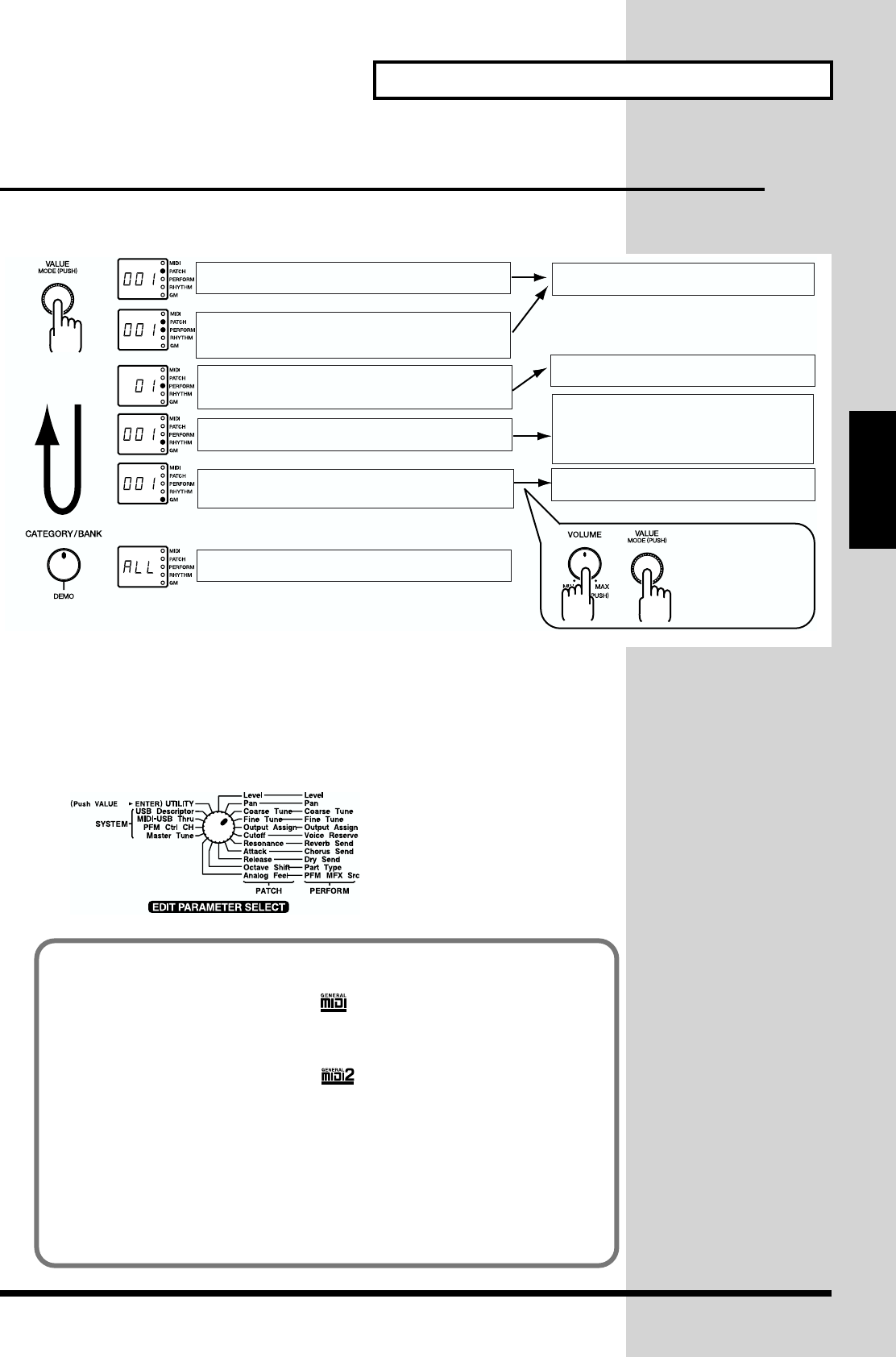
39
Playing Sounds
Playing Sounds
Switching the Mode (Patch, Performance)
The XV-2020’s parameters are organized into ten different modes. You can easily
switch modes using the [VALUE] knob or [VOLUME] knob.
fig.01-13e
* Rotating [PART] while in Performance Play mode switches you to Performance Part Play mode.
* The Patch, Performance, or Rhythm Set in use when the power was last turned off is automatically called
up again the next time you turn on the power.
In Edit mode, select the parameters to be edited with the [CATEGORY/BANK]
knob. For more on the parameters, refer to the EDIT PARAMETER SELECT table on
the XV-2020's upper panel.
DEMO Mode
Patch Play Mode
Performance Part Play Mode
Performance Play Mode
Rhythm Play Mode
GM Play Mode
Patch Edit Mode
Performance Edit Mode
Rhythm Edit Mode
GM Edit Mode
Choose this mode when playing a single Patch from a keyboard.
This is the mode in which Patches (Rhythm Sets) assigned to
the Performance parts are played.
Choose this mode when using the XV-2020 as a multitimbral
sound module.
Choose this mode when playing Rhythm Sets from a keyboard.
Choose this mode when using the XV-2020 as a General MIDI 2
compatible sound module
Choose this mode when changing Patch settings.
Choose this mode when changing Performance settings.
Choose this mode when changing Rhythm Set settings.
XV-2020 Rhythm Sets can be used in any Part
in a Performance. You can also select the desired
multi-effects for a Rhythm Set.
Choose this mode when changing GM2 settings.
To change to Edit mode...
While holding down [VOLUME],
press [VALUE].
You can switch between
Play modes
by pressing VALUE.
Rotate the CATEGORY/BANK
knob to the DEMO position.
Choose this mode when listening the DEMO songs.
General MIDI is a set of recommendations that standardizes the MIDI capabilities of
sound modules. Sound modules and music files that adhere to the General MIDI
standard bear the General MIDI logo ( ). Music files bearing the General MIDI
logo can be played back using any General MIDI sound module with essentially the
same musical results.
The upwardly compatible General MIDI 2 ( ) recommendations pick up where General
MIDI leaves off, offering enhanced expressive capabilities and even greater compatibility.
Issues not covered by the original General MIDI standard - such as how sounds are
to be edited, and how effects should be handled - are precisely defined in General
MIDI 2. Moreover, the available sounds have been expanded. General MIDI 2
compliant sound modules are capable of reliably playing back music files that carry
either the General MIDI or General MIDI 2 logo. In some cases, the conventional
form of General MIDI, which does not include the new enhancements, is referred to
as “General MIDI 1” as a way of distinguishing it from General MIDI 2.


















